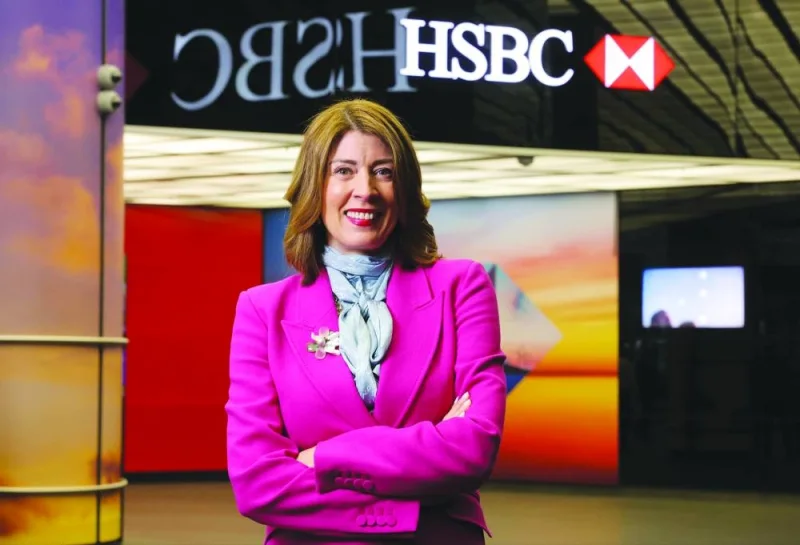The recent high energy prices have led to “significant" capital inflows, opening new opportunities for Qatar, which is also ideally placed to take advantage of the India-Middle East-Europe Economic Corridor (IMEC), according to a top official of HSBC.
In an interview to Gulf Times, Lisa McGeough, co-head, Global Banking Coverage, HSBC, said recent high energy prices have brought significant inflows of capital to Qatar, which is already the world’s biggest exporter of LNG (liquefied natural gas) and plans to boost production by 63% by 2027.
"This capital opens a wealth of new opportunities aligned with the future economy and new industries," she said, ahead of her meeting with clients in Doha.
There are countless global opportunities in both developed markets and the global south where commodities that will be a mainstay of future technologically-enabled economies reside and where climate change needs are most pressing, she said, adding taken together, these forces are shaping the next phase of the global economy’s evolution.
The infrastructure that will provide the backbone of this phase is also in development, with a great example being the IMEC announced at the G20.
This cost-effective, cross-border, ship-to-rail transit network will not only further secure regional supply chains but also increase trade accessibility, improve trade facilitation and support an increased emphasis on environmental social, and government (ESG) impacts.
"Qatar is ideally placed to take advantage of these new megatrends. Qatar’s National Vision 2030 is the embodiment of that," she said.
Stressing that HSBC will use its unique global network in more than 60 countries and territories to support Qatar with reaching its ambitions; McGeough said that means helping unlock new ideas in Asia, the US, and Europe, broadening and deepening domestic capital markets and helping companies embrace both climate and sustainable finance-related opportunities.
As far back as 2003, HSBC prioritised Qatar as a growth market globally, through what management back then called the ‘Managing for Growth’ strategy, she said, adding "that hasn’t changed. If anything, our focus has sharpened."
On Qatar's capital market, she said the "progress is clear for all to see". Since securing MSCI Emerging Market status almost a decade ago, the market infrastructure has been strengthened through new legislation and the introduction of new products, which has led to a deepening of the investor base, both locally and internationally, according to her.
"It’s perhaps no surprise, then, that the share of foreign investors in QSE’s trading values has seen significant increases in 2022 and 2023," she said, adding "we see similar trends across the Gulf Cooperation Council (GCC), where capital markets are highly active."
Asked about sustainability trends in the Gulf bourses, she said in January this year, Gulf exchanges announced unified ESG metrics for the GCC-listed companies.
Enshrined in 29 standards aligned with the World Federation of Exchanges and Sustainable Stock Exchanges Initiative, they comprise categories covering greenhouse gas emissions, energy usage, water usage, gender pay, employee turnover, gender diversity, data privacy, ethics and more, according to her.
"Whilst voluntary, they represent a significant step towards standardising ESG disclosures across the GCC region," she said.
Business
High energy price-led capital inflows create opportunities; Doha ideally placed take advantage of India-Middle East-Europe Economic Corridor: HSBC

Lisa McGeough, co-head, Global Banking Coverage, HSBC

